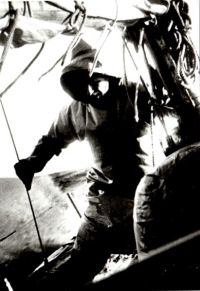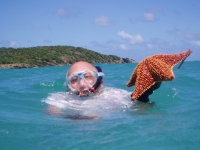I appreciate the family background and good friends
Download image
Karel Eliáš was born on 10 April 1945 in Mirovice near Březnice as the eldest of three brothers. Two years later the family moved to Příbram. He graduated from the Secondary Industrial School in Příbram and completed his university studies in 1968 at the Czech Technical University in Prague. In August 1968 he witnessed the arrival of the occupation troops in Prague. With his friends he painted anti-Soviet slogans on the walls and distributed leaflets. One of his friends was shot by Soviet soldiers and found in hospital. He married the same year, and raised two children with his wife. After college, he began working as a technician at the Příbram Uranium Mines, where he stayed until the revolution. In the 1970s he led a boating club in Příbram and sailed on a yacht in the Arctic Ocean and the Mediterranean Sea. In 1984, he led a yachting trip to Yugoslavia, from which three families emigrated when he returned to his homeland. He did not go abroad from then until 1989. In 1982-1986 he completed additional studies for teachers and after the revolution he became director of the apprenticeship in Dubno near Pribram. Later, he also taught at the Waldorf School Příbram. He never stopped building boats and sailing in the seas. At the time of the filming in 2024 he lived in Příbram.

